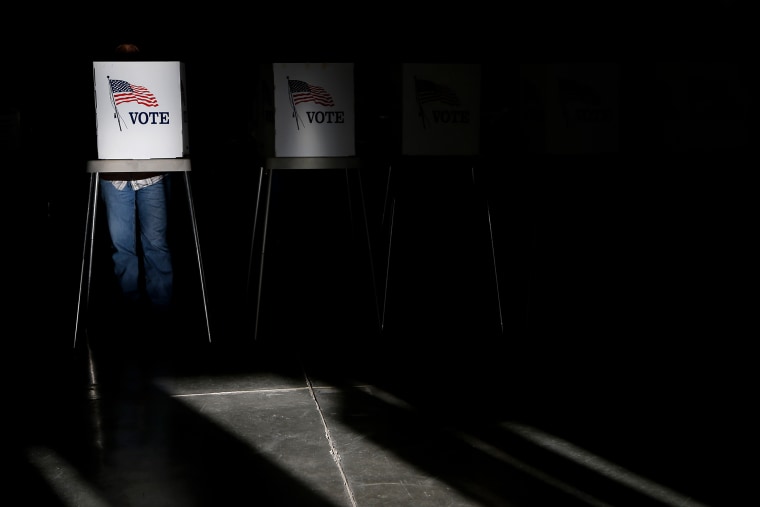There are all kinds of interesting races in 2016, but there's nothing quite like the Republican Senate primary in Colorado.
National and state GOP leaders tried to recruit a top-tier contender to take on incumbent Sen. Michael Bennet (D), but those efforts came up short. Left with few credible options, Republicans rallied behind former state Rep. Jon Keyser (R), who was temporarily removed from the ballot because he failed to submit the necessary number of petition signatures.
Keyser went to court and a judge ruled in his favor, concluding that state law in this area is only intended to prevent fraud. The GOP candidate tried to collect the required petition signatures, the judge said, and he came close, and that was good enough.
Asked for an explanation, Keyser initially refused to answer questions about the controversy, going to cringe-worthy lengths to argue the questions themselves were illegitimate. Yesterday, as the Denver Post reported, the GOP candidate changed direction.
U.S. Senate candidate Jon Keyser acknowledged for the first time Monday that his campaign submitted forged signatures to qualify for the Republican primary, breaking his silence to distance his candidacy from the building controversy. The former state lawmaker blamed an employee hired by a canvassing firm connected to his campaign and suggested the issue will not hurt his once-promising bid because he collected more than enough voter signatures to qualify for the race.
Keyser, who last week said the questions were irrelevant, now concedes that the fraudulent signatures are a "very serious thing," but he doesn't want voters to blame his campaign operation.
The Denver District Attorney's Office is reportedly reviewing the Keyser campaign's petitions to see if any laws were broken, either by his operation or those Keyser paid to collect signatures.
Keyser is one of five Republicans on Colorado's primary ballot, and the election is June 28. There's a possibility that if Keyser's campaign is found to have committed fraud, the votes for him could be invalidated, but by all accounts, such an outcome appears highly unlikely.
Whether GOP primary voters hold the controversy -- and Keyser's deeply unfortunate reaction to questions about the story -- against the candidate remains to be seen.
